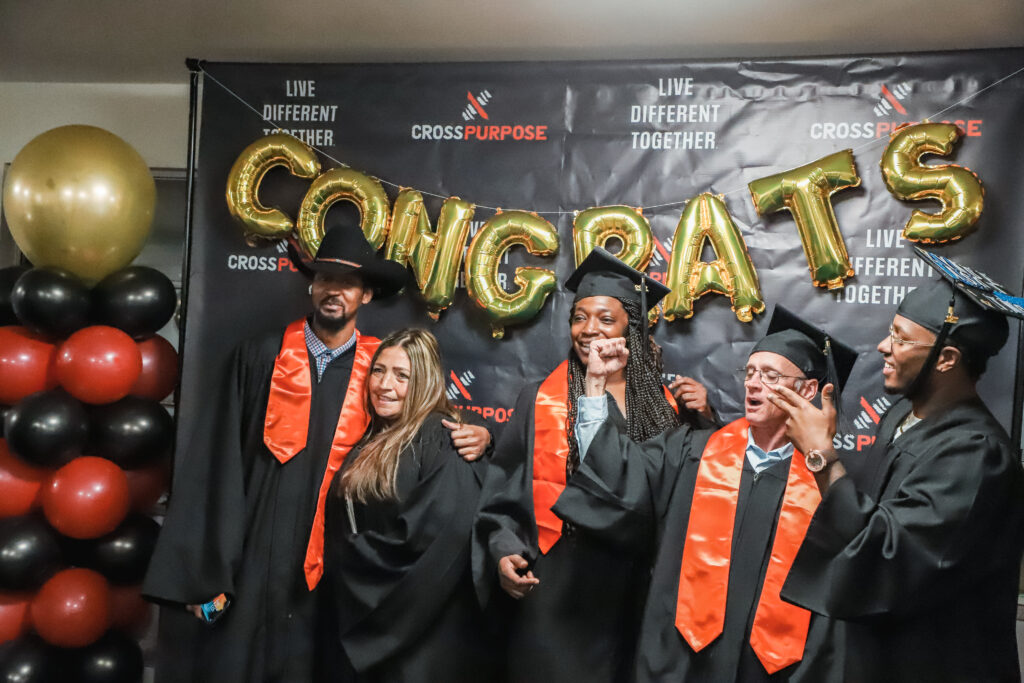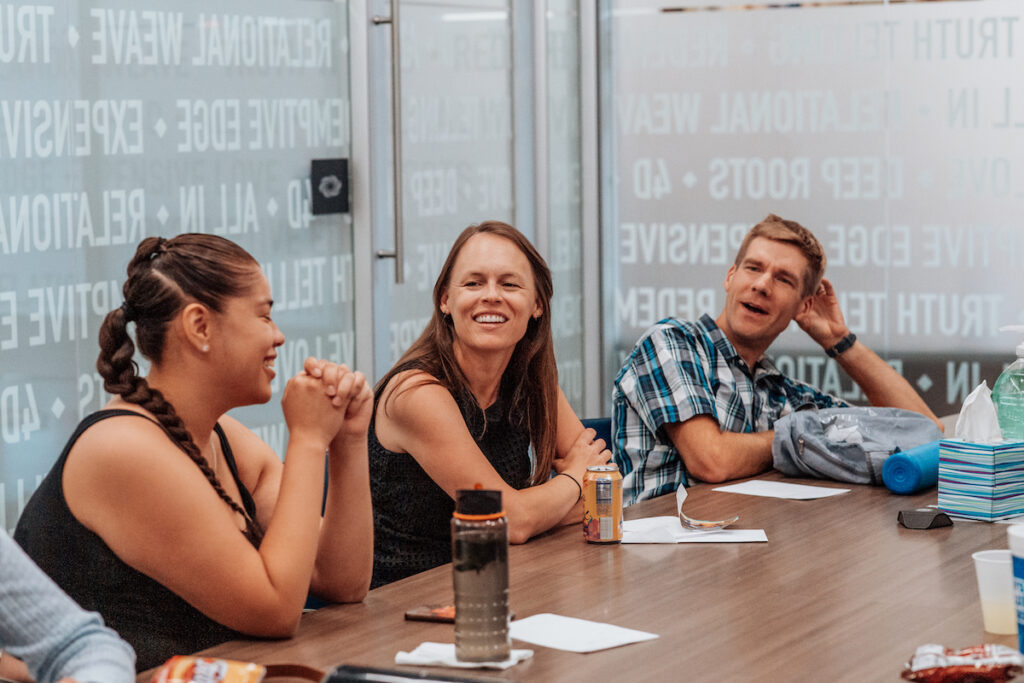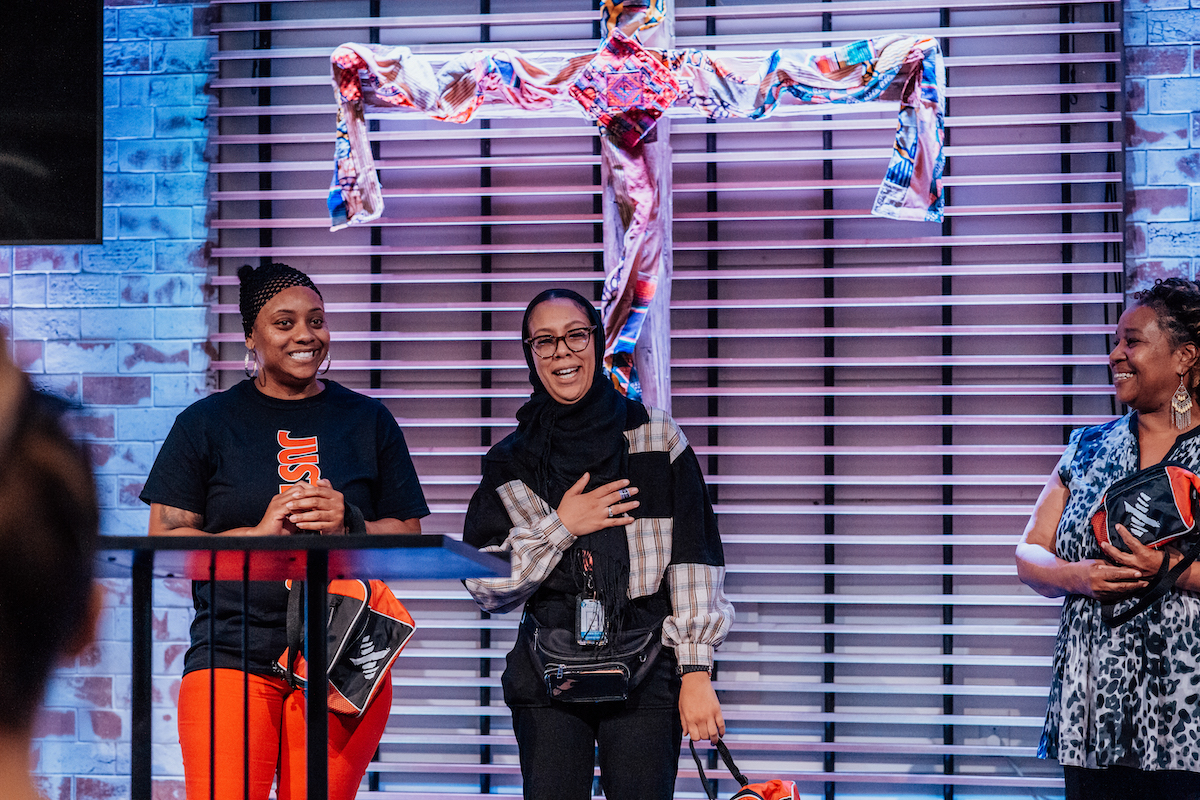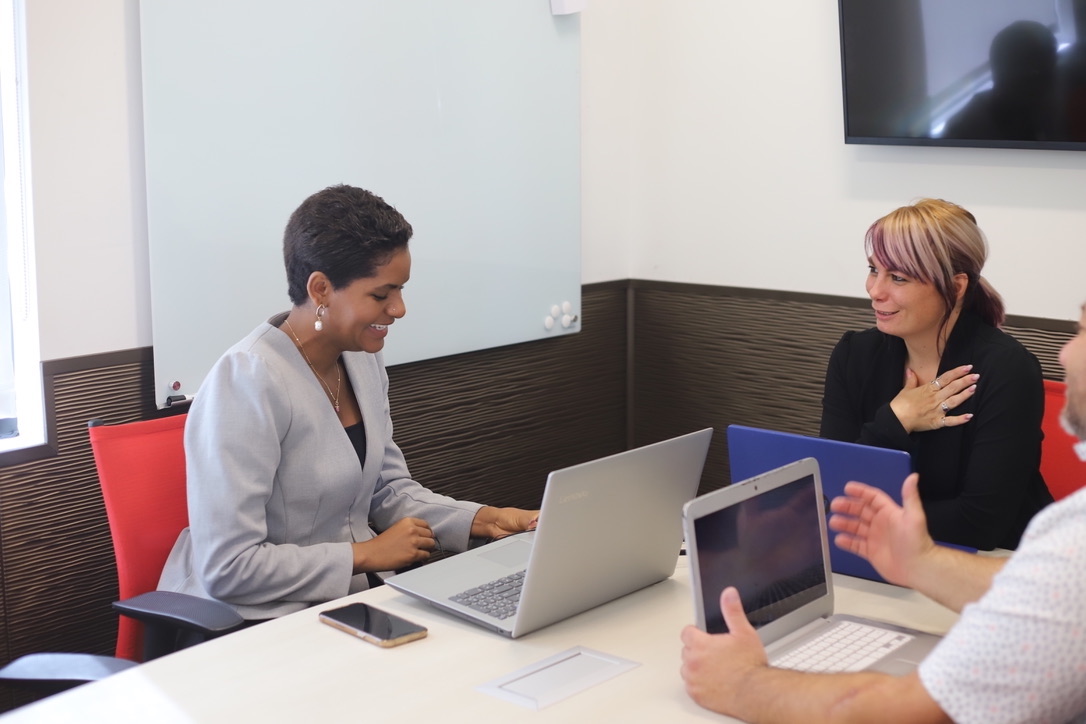OUR HOLISTIC APPROACH
UNDERSTANDING THE EXPERIENCE OF POVERTY
In our society today, when many Americans think about poverty, they tend to think in economic categories. You may have heard someone comment, “They just need to get a job!” as if that would solve the problem. While a good job may help someone escape poverty for a time, most cycle back in within 3-5 years. So, there is more at play than mere economics.
When many people look at people in poverty, they say, “What’s wrong with you?” At CrossPurpose, we start with “What’s happened to you?”
You see, poverty is often fruit on the tree of a broken world and broken system. The roots of the tree can be a societal system that holds people back, an environment of hopelessness that pervades communities, a lack of relationships and exposure to advancement opportunities, racial and economic oppression, traumatic experiences that leave people wounded, etc. Therefore, just putting someone in a job short-circuits the pathway to true life and societal transformation.
We see people as unique creations of God who possess the dignity, worth, and value necessary to achieve their potential. We exist to help them see their true potential and to activate it so as to stop generational poverty. While money can help someone escape financial poverty, holistic transformation builds a life of flourishing.
At CrossPurpose, we define our holistic approach as abolishing economic, relational, and spiritual poverty.

Economic Poverty
The core definition of poverty is the inability of someone to exist and provide for their basic needs. Around the world, we think of basic needs as food, shelter, and clothing. In America, many would argue that transportation and healthcare are part of basic needs.
The Federal Government defines poverty through the Federal Poverty Guidelines (FPG) published annually. For 2023, the federal poverty level is $13,590 for an individual ($27,750 for a family of 4). This works out to an income level of $7/hr for a single person or $14/hr for a family of four. All government safety net programs are set off of these amounts. Therefore, for someone to be out of poverty, they must make more than these guidelines.
However, most people who work with low-income families would agree that a livable wage would be about 200% of the FPG. While many non-profits ask the question, “How do we help people in poverty?”, we want to ask a different question – “How do we help people get out of poverty?”
To that end, we offer a free six-month program focusing on workforce development, both soft and hard skills. We offer over a dozen career tracks for our neighbors and so they can achieve a credential which will launch them into a career. While our neighbors work hard during those six months, we do not consider it a success until our neighbors get jobs paying $19/hr or more. We are an outcomes-based non-profit, not an activities-based non-profit.

Relational Poverty
There is no significant change without a significant relationship.
Through learned and lived experience, we believe that transformation usually happens through a relationship. Someone coaches us, confronts us, or just cares for us and we see the world and ourselves differently. In our polarizing society, it seems like people are moving further apart. At CrossPurpose, we believe we must aggressively pursue the exact opposite by reweaving the fabric of a frayed society.
We do this through fostering deep relationships between our participants and volunteers. We call our participants Leaders and our volunteers Allies. The Leaders lead their own change out of poverty into the future they deserve. The Allies are not mentors who teach the Leaders, but rather friends who walk alongside them to encourage them on the journey and to be there for support when necessary.
We ask our Allies to identify an area of their life where they are experiencing poverty and where they want to grow during the program. This provides an environment of reciprocity, mutual respect, and a level playing field. One of the highlights of this relationship building occurs at our mid-week family dinner where all of us gather for dinner, celebration, affirmation and small group breakouts. Through this, many people see their perspectives changed, doors opened, judgments dropped, and life-long friendships made.

Spiritual Poverty
We define “spiritual” as that which pertains to the mind, the will, and the emotions. We believe every person has a spiritual nature, not just a physical body. We desire to see all program participants grow spiritually during their time at CrossPurpose. Spiritual poverty needs to be addressed in order for long-term transformation to take hold.
We believe everyone is on a journey and we desire to encourage them to pursue spiritual development. Our core curriculum teaches emotional awareness and regulation, coping skills, self-reflection and journaling, conflict resolution, healing from trauma, identity development, and how to process guilt and shame. We offer eight hours of counseling and therapy for every Leader as well as an individualized identity development journey.
While we are a faith-based organization, our curriculum contains no explicit faith-based content. We believe every person is on a spiritual journey and must be honored with the place and pace of their journey.
The people we serve enter our program with many different approaches to faith and spirituality and at many different levels of spiritual awareness and openness. We respect the agency of our participants and do not use the power of charity to coerce people into faith practices or participation. We foster an inclusive faith-friendly environment where neighbors of all beliefs are welcome and respect is given to all faith traditions. People of all faiths and beliefs are welcome to express their faith and our program staff will make accommodations for all forms of religious practices that may be necessary during program times.
About half of our Leaders come from a Christian background and it is central to many of their lives and how they view the world. We offer optional classes for faith development during off-hours where participants can engage topics related to the Christian faith. This has caused many of our neighbors to re-engage their faith in a place and at a time that is meaningful to them.

A Holistic Integration
We believe when we engage the whole person, deep transformation occurs and a new lifelong trajectory is set. Abolition of poverty comes from an approach to the human spirit with dignity, respect, and love. This kind of love is the most powerful force in the world. Come join us on this journey!
Contact Us
Complete this form if you have questions about our program and would like to speak with a CrossPurpose team member!
